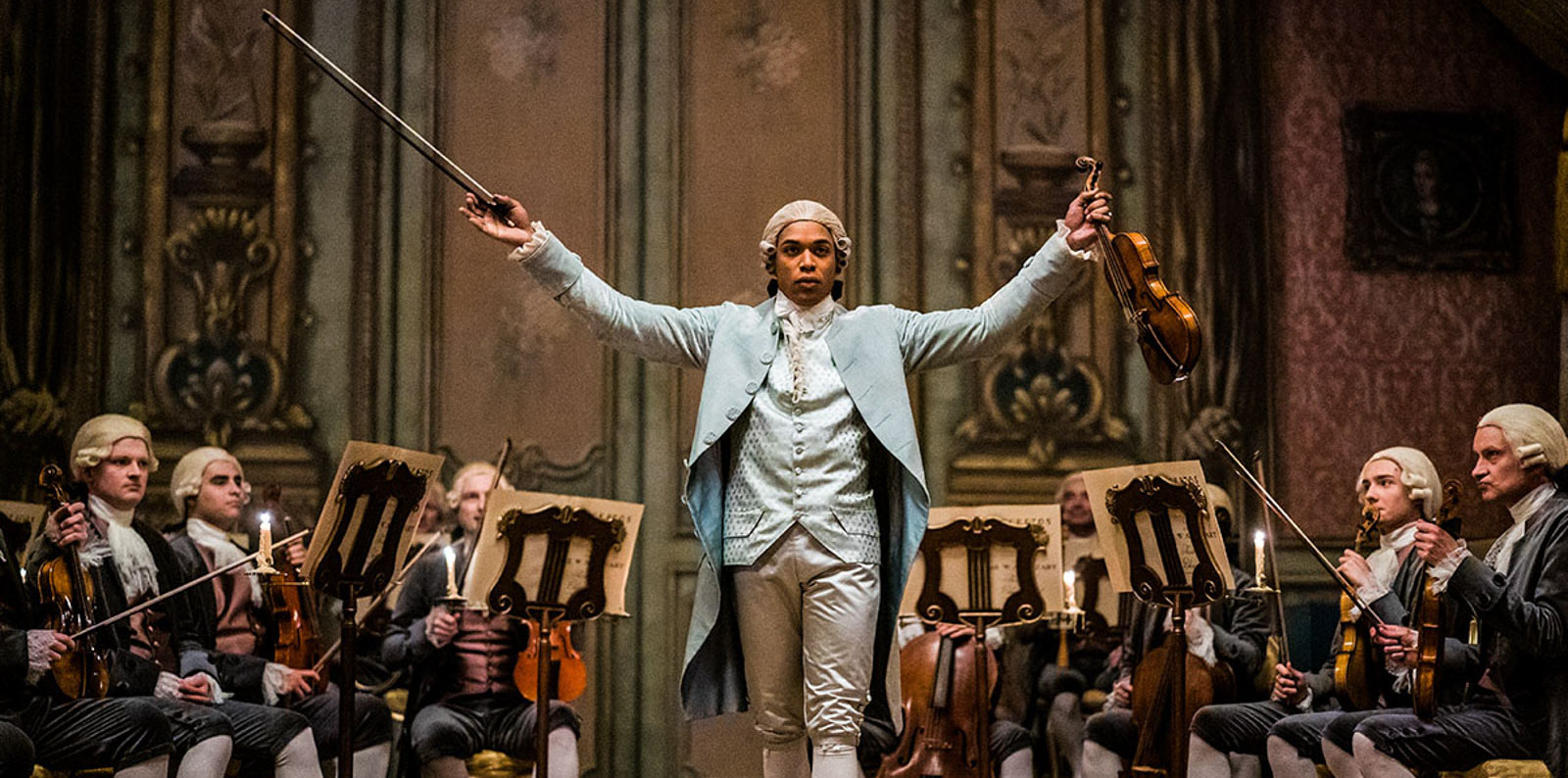
If this all sounds like a soap opera, it is even more extreme than that — it is opera-opera. If we treat Chevalier almost as an operatic version of Joseph Bologne’s life, it kind of works. While you’re in the film, the drama is compelling, even if it sometimes seems a bit heightened. Director Stephen Williams (Watchmen, Westworld, Lost) and writer Stefani Robinson (Atlanta, Fargo, What We Do in the Shadows) know how to build tension and accentuate conflict. But that strength is also a weakness — the Hollywood stamp is a bit too noticeable here.
While some of the broad strokes of the film are true, Chevalier takes huge liberties with history and the details of his life. This is unfortunate — his life was already astounding and complex. Reducing it to simplistic turning points and Hollywood-style conflicts just cheapens the whole affair and leave the audience in doubt as to whether anything is true. This really reaches a breaking point when Marie Antoinette visits Chevalier at his apartment. Queens don’t make house calls to argue the finer points of civics with their subjects. We shouldn’t be rolling our eyes at this critical point in the movie.
Kelvin Harrison Jr. does fine work as Joseph Bologne — most of my criticisms of his performance are with the writing and direction. He’s quite astounding at convincingly playing an accomplished violinist, something he learned from working with his father, a professional musician, for six months prior to shooting. His acting abilities are up to the task as well, though I wish his role was written with a little more subtlety. In the film, he’s all swagger and bravado, at least until some tragic events in his life give him pause.
“…written for contemporary audiences with modern sensibilities and doesn’t care much for realism.”
One gets the sense that the real Bologne was a bit less confrontational about his place in the social order. For example, he was much more friendly with Mozart than the film lets on. And when it was clear that people were a group of women associated with the opera were protesting his possible selection as head of the Paris Opera, the real Chevalier withdrew his name so as not to embarrass his friend Marie Antionette.
From the use of English to the historical inaccuracies to the distortions of the character of Joseph Bologne, it is clear that Chevalier is written for contemporary audiences with modern sensibilities and doesn’t care much for realism. The set design and production value are top-notch, which makes it even more jarring that the production sounds so modern and American. It is taken to such extremes as to be its downfall. It somehow seems less believable because we’re ever aware of being manipulated. It is a shame because, in this case, the real truth was so much stranger than fiction.
Chevalier screened at the 2022 Toronto International Film Festival.

"…it's simultaneously pretty good and rather bad."
